








Hawaii Island Recovery
Verified Center
This provider's information has been quality-checked by Recovery.com's Research Team for accuracy and completeness, including center verification through appropriate third-party organizations.
Treatment Focus
This center treats substance use disorders and co-occurring mental health conditions. Your treatment plan addresses each condition at once with personalized, compassionate care for comprehensive healing.
Primary Level of Care
Offering intensive care with 24/7 monitoring, residential treatment is typically 30 days and can cover multiple levels of care. Length can range from 14 to 90 days typically.
Treatment Focus
This center treats substance use disorders and co-occurring mental health conditions. Your treatment plan addresses each condition at once with personalized, compassionate care for comprehensive healing.
Primary Level of Care
Offering intensive care with 24/7 monitoring, residential treatment is typically 30 days and can cover multiple levels of care. Length can range from 14 to 90 days typically.
Provider's Policy
Hawaii Island Recovery works with most PPO insurance plans which can cover 100% of treatment after deductibles. Our insurance experts provide a free, confidential benefit verification so you have a clear picture of what the costs of treatment would be at our facility and how to maximize your insurance benefits. We do not accept Medicare or Medicaid. Please call for private pay rates.
Hawaii Island Recovery
Hawaii Island Recovery
About Hawaii Island Recovery
Hawaii Island Recovery provides residential addiction care for adults on the beautiful island of Kona. They offer evidence-based treatment, medically supervised detox, holistic and experiential therapies, and outpatient continuing care. Hawaii Island Recovery also treats co-occurring mental health conditions like anxiety, eating disorders, and post-traumatic stress disorder (PTSD), as well as behavioral addictions like sex and gambling. Their programs are founded on 3 elements designed to treat the whole person: clinical care, holistic health, and recreational activities.
Comprehensive Addiction and Mental Healthcare
Treating only 8 clients at a time, their personalized recovery programs offer medical, mental health, and therapeutic services. Highly trained medical professionals oversee the detox process, supported by nursing staff available 24/7. After completing detox, clients transition into residential programming to begin individual and group talk therapy. Hawaii Island Recovery’s therapists utilize Cognitive Behavioral Therapy (CBT), Emotional Freedom Technique (EFT), Rational Emotive Behavior Therapy (REBT), and Dialectical Behavior Therapy (DBT). They provide compassionate trauma-informed care with techniques such as Eye Movement Desensitization and Reprocessing (EMDR) and Neurofeedback. To create a cohesive recovery community, Hawaii Island Recovery encourages community-based support through 12-Step meetings and Dharma recovery meetings.
Holistic Healing with Experiential Modalities
Hawaii Island Recovery uses experiential therapies as a therapeutic group modality to inspire emotions and insights contributing to long-term recovery. Their offerings include educational experiences in Hawaiian culture and nature-based therapies. Clients embark on hikes through cloud forests that reveal stunning ocean views, lava fields, and tucked away waterfalls. On the ocean, clients engage in dolphin-assisted therapy and whale watching. Trips and excursions respect and celebrate local communities.
Tranquil Recovery on Kona
Located on the westernmost point of the Big Island, Hawaii Island Recovery offers spectacular ocean views and a comfortable healing destination. Spacious bedrooms, chef-prepared meals with locally-sourced food, and a beautiful yard with lush plants and fruit trees make Hawaii Island Recovery an ideal recovery home. They take advantage of the stunning island with visits to black sand beaches, mountain hikes, waterfall treks, and water activities.

Highlights from the Center
Highlights
These highlights are provided by and paid for by the center.
Nature Lovers
Customized Treatment Plans
Holistic Approach
Beach Access
Center Overview
Treatment Focus
This center treats substance use disorders and co-occurring mental health conditions. Your treatment plan addresses each condition at once with personalized, compassionate care for comprehensive healing.
Joint Commission Accredited
The Joint Commission accreditation is a voluntary, objective process that evaluates and accredits healthcare organizations (like treatment centers) based on performance standards designed to improve quality and safety for patients. To be accredited means the treatment center has been found to meet the Commission's standards for quality and safety in patient care.

Hawaii Island Recovery
Insurance Accepted
Cash Pay Rates
Estimated Cash Pay Rate
Center pricing can vary based on program and length of stay. Contact the center for more information. Recovery.com strives for price transparency so you can make an informed decision.




Recovery.com Verified Listing
Recovery.com verified that the name, location, contact information and license to operate for this treatment provider are valid and up-to-date.

CARF Accredited

Licensed by Hawaii

NAATP Member
Recovery.com is an independent, third-party mental health resource. Verification does not imply endorsement and does not guarantee the quality of treatment services.
Meet Your Care Team
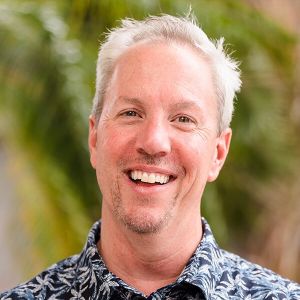
Scott Schroeder
CEO
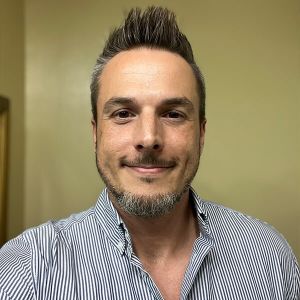
Kevin Schroeder
Director of Admissions

Stephen H. Denzer
Medical Director
M.D., FACP

Gudrun Baumgaertl
Finance Director
PH.D

Frank Capatch
Clinical Director & Lead Therapist
LCSW
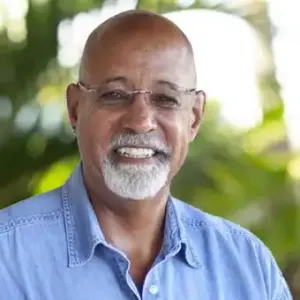
Fernando Manon
Therapist
MSED., CSAC
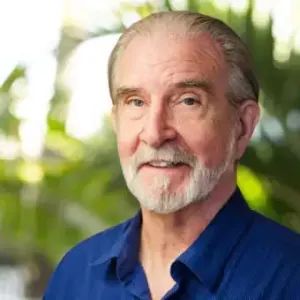
David Molletti
Operations Coordinator and Family Therapist
BS, NCACI, CFTP

Daniel Caputo
Naturopath and Acupuncturist
N.D., L.AC
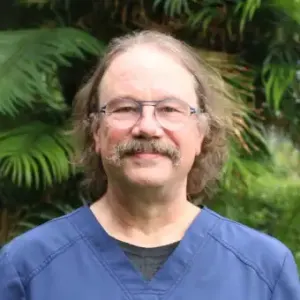
Kevin Snow
Registered Nurse

Toby Broido
Resident Manager & Admissions
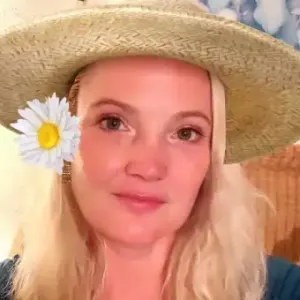
Stacey Rodman
Resident Manager & Patient Care Coordinator

Douglas Moorman
Outpatient Therapist

Sophie Holm Higgins
QA Specialist & Chief Compliance Officer
Your Care Options
Specializations
Alcohol
Using alcohol as a coping mechanism, or drinking excessively throughout the week, signals an alcohol use disorder.
Benzodiazepines
Benzodiazepines are prescribed to treat anxiety and sleep issues. They are highly habit forming, and their abuse can cause mood changes and poor judgement.
Cocaine
Cocaine is a stimulant with euphoric effects. Agitation, muscle ticks, psychosis, and heart issues are common symptoms of cocaine abuse.
Drug Addiction
Drug addiction is the excessive and repetitive use of substances, despite harmful consequences to a person's life, health, and relationships.
Heroin
Heroin is a highly addictive and illegal opioid. It can cause insomnia, collapsed veins, heart issues, and additional mental health issues.
Methamphetamine
Methamphetamine, or meth, increases energy, agitation, and paranoia. Long-term use can result in severe physical and mental health issues.
Opioids
Opioids produce pain-relief and euphoria, which can lead to addiction. This class of drugs includes prescribed medication and the illegal drug heroin.
Veterans
Patients who completed active military duty receive specialized treatment focused on trauma, grief, loss, and finding a new work-life balance.
Who We Treat
Men and Women
Men and women attend treatment for addiction in a co-ed setting, going to therapy groups together to share experiences, struggles, and successes.
Veterans
Patients who completed active military duty receive specialized treatment focused on trauma, grief, loss, and finding a new work-life balance.
Treatment Services
Detox
Detox fully and safely removes toxic substances from the body, allowing the next steps in treatment to begin with a clean slate.
Outpatient
During outpatient rehab, patients attend a structured treatment program while continuing to live at home.
Residential
In a residential rehab program, patients live onsite, with access to daily treatment and 24-hour care. An average stay is 30-90 days.
Transitional Living
After rehab, some people stay in a transitional living situation before returning home. These programs offer structure, education, and community support.
Approaches
Evidence-Based
A combination of scientifically rooted therapies and treatments make up evidence-based care, defined by their measured and proven results.
Medical
Medical addiction treatment uses approved medications to manage withdrawals and cravings, and to treat contributing mental health conditions.
Twelve Step
Incorporating spirituality, community, and responsibility, 12-Step philosophies prioritize the guidance of a Higher Power and a continuation of 12-Step practices.
Wellness
Wellness philosophies focus on the physical, mental, and spiritual wellness of each patient, helping them restore purpose with natural remedies.
Therapies
1-on-1 Counseling
Patient and therapist meet 1-on-1 to work through difficult emotions and behavioral challenges in a personal, private setting.
Meditation & Mindfulness
A practiced state of mind that brings patients to the present. It allows them to become fully aware of themselves, their feelings, and the present moment.
Adventure Therapy
This experiential approach uses the physical and emotional challenges of outdoor activities as tools for personal growth.
Art Therapy
Visual art invites patients to examine the emotions within their work, focusing on the process of creativity and its gentle therapeutic power.
Dolphin Therapy
Swimming with friendly dolphins is an exciting way to improve well-being, mental health, and interpersonal skills.
Equine Therapy
Guided interactions with trained horses, their handler, and a therapist can help patients improve their self-esteem, trust, empathy, and social skills.
Substances We Treat
Alcohol
Using alcohol as a coping mechanism, or drinking excessively throughout the week, signals an alcohol use disorder.
Benzodiazepines
Benzodiazepines are prescribed to treat anxiety and sleep issues. They are highly habit forming, and their abuse can cause mood changes and poor judgement.
Co-Occurring Disorders
A person with multiple mental health diagnoses, such as addiction and depression, has co-occurring disorders also called dual diagnosis.
Cocaine
Cocaine is a stimulant with euphoric effects. Agitation, muscle ticks, psychosis, and heart issues are common symptoms of cocaine abuse.
Drug Addiction
Drug addiction is the excessive and repetitive use of substances, despite harmful consequences to a person's life, health, and relationships.
Ecstasy
Ecstasy is a stimulant that causes intense euphoria and heightened awareness. Abuse of this drug can trigger depression, insomnia, and memory problems.
Heroin
Heroin is a highly addictive and illegal opioid. It can cause insomnia, collapsed veins, heart issues, and additional mental health issues.
Psychedelics
Hallucinogenic drugs—like LSD—cause euphoria and increased sensory experiences. When abused, they can lead to depression and psychosis.
Languages
Aftercare
Care Designed for Your Needs
Personal Amenities
Amenities
Special Considerations
Healthy Meals are provided
Great food meets great treatment, with providers serving healthy meals to restore nutrition, wellbeing, and health.
Activities
Yoga
Yoga is both a physical and spiritual practice. It includes a flow of movement, breathing techniques, and meditation.
Off-Site Activities
Off-Site Amenities
Learn More About the Center
More About Hawaii Island Recovery
Read about their mission, what to expect, and their approach.
What’s Included at Their Facility
Explore Hawaii Island Recovery’s beautiful home and programs they offer.
Experiential Programming
Explore the unique experiential activities offered at Hawaii Island Recovery.
Residential Treatment
Learn more about what’s included in their residential program.
What people are saying
Treatment
4.1
Accommodations
4.5
Food & Nutrition
4.5
Value
4.4
James
Reviewed 06/23/20
Review from Rehabs.com
Lily
Reviewed 07/20/16
Review from Rehabs.com
Roxanna
Reviewed 08/05/16
Review from Rehabs.com
Molly
Reviewed 11/15/14
Review from Rehabs.com
NC
Reviewed 12/15/16
Review from Rehabs.com





